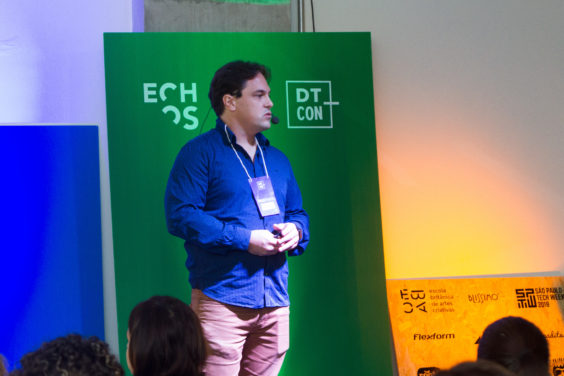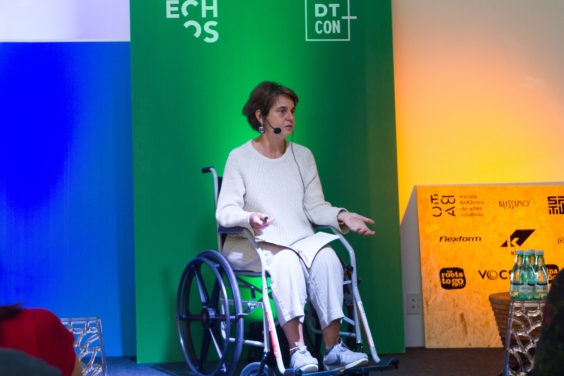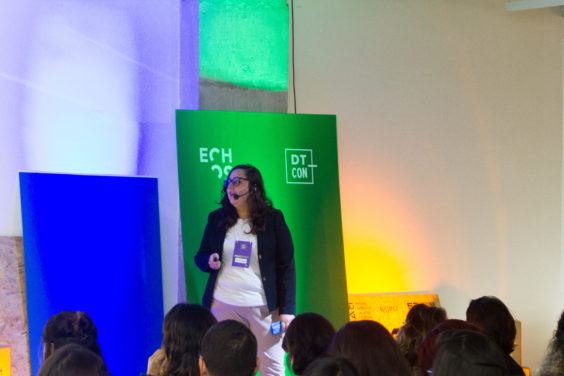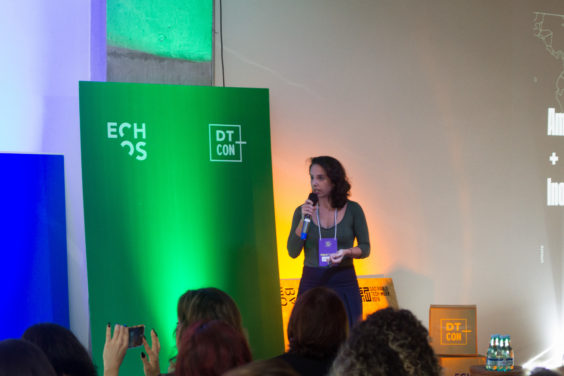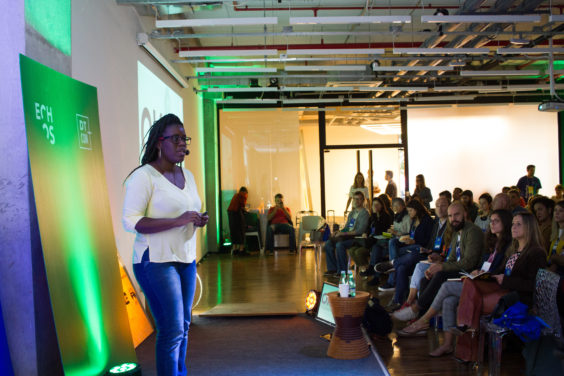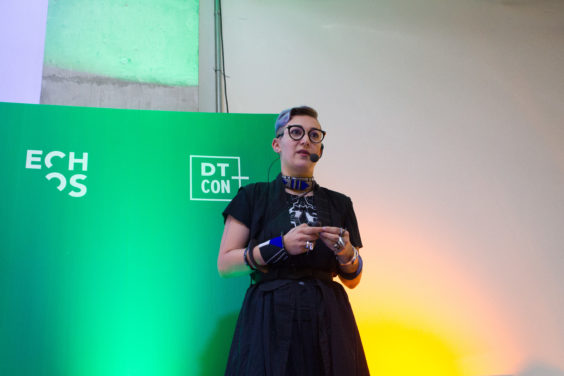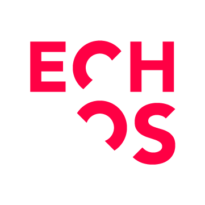DT-CON’s second day was marked by an ethical discussion on how to build desirable futures. Guest speakers talked about the role diversity and ethics play in designing our “new world”.
Here are the day two highlights:
Ricardo Ruffo – Echos, Brazil
Why do we need utopias? Ricardo Ruffo, Echos co-founder and CEO, believes that we need them because in his words “we lost the ability to dream”. He arrived at this conclusion by observing how social algorithms are preventing us from leaving our “bubbles” – we only read the same type of news, only get impacted by the same kind of information, only buy similar products to the ones we already purchased and only make similar decisions to the ones we previously made.
He talked about how humanity biggest accomplishments – such as human rights or female rights – only begun to exist thanks to utopian ideas that were considered “insane”.
“Utopia means to question the status quo and build new narratives. Design can help in this scenario by helping in the creation of new ideas and instituting creative confidence in people. This is the way we take the building of our future from the technocrats’ hands.”
Cuca Righini – Echos, Brazil
Echos’ Culture Manager, Cuca Righini, talked to attendees about different forms in which diversity can happen. Speaking on the importance of multiple points of view, she warmed up the stage to the following speakers, whom all talked about diversity of some kind, too.
“Design Thinking has been a vessel to navigate through complexity, working with conversion and diversion, and aligning the values of empathy, collaboration and experimentation. When we reach collective intelligence, we are can understand a problem and start to tackle it from a place of understanding.”
She concluded her talk by pointing out that “In a world where artificial intelligence is abundant, emotional intelligence is the best asset one can possess.”
Duda Carvalho – TODXs, Brazil
Duda Carvalho is the co-founder of the Brazilian non-for-profit organisation TODXs – an acronym that means “everyone, regardless of gender”.
She spoke brought to the table important questions regarding gender and inequality in today’s society and showcased alarming numbers regarding violence against the LGBTQ community.
Carvalho proposed a question: “How might we create a different future?”, to which she answered by suggesting that people need to tap into a collective intelligence in order to innovate and create change in society that results in equality.
Beatriz Pedreira – Update Institute, Brazil
Beatriz Pedreira, founder of Update Project, who spent the last few years mapping innovations in Latin America.
“Innovation comes from necessity”, she said about what she learnt during her research.
Maitê Lourenço – Black Rocks, Brazil
Specialist in Design Thinking, the psychologist Maitê Lourenço, realised that Afro-descendant people weren’t significantly present in numbers within the innovation and entrepreneurship communities. Conducting her research in the USA, she figured out that investors tend to put their money towards initiatives fronted by people who physically look like them and that have similar life stories to their own; as most of them are affluent white men, the lack of diversity shows in their investment choices.
In an attempt to change that, she created Black Rocks, a startup that connects the black community with the innovation and entrepreneurship world.
Monika Bielskyte – ALL FUTURE EVERYWHERE, Lithuania
How does our society envisions the future? With a quick Google image search, the futurist Monika Bielskyte – founder of ALL FUTURE EVERYWHERE – showed us what our general idea of the future is like: scary technology, cities covered in advertisement, lonely people, female bodies objectified, pollution, destruction.
Monika has been travelling the world – particularly developing countries – to map and design future trends that are inclusive and optimistic.
Bielskyte listed what the dystopian future movies are lacking in (and, therefore, what will help us prevent getting trapped in a future like that):
1- Ethnic diversity and non-binary population integration (end of discrimination)
2- Community narratives (people living in harmony)
3- Celebration of the physical presence (using technology to promote mobility and not isolation)
4- Value of spirituality of any kind
5- Value of creativity, youth and subculture groups
“Our biggest challenge is to imagine a future where there is hope. This hope won’t be found in technology, but in humanity”, she said.
Watch DT-CON 2018’s highlights from Professor Uli‘s (HPI D-School, Germany) point of view:
*Original article by Natália de Almeida Figueiredo. This article was translated, adapted and edited by Rani Ghazzaoui Luke.
—
Follow us on social
Instagram – Facebook – LinkedIn
How Can We Help?
For training and Innovation Journeys in your company: check out our in-house course offering
For upcoming courses in your region: visit our website.
If you have a special project and would like to use Echos’ consultancy services: send us an email.


